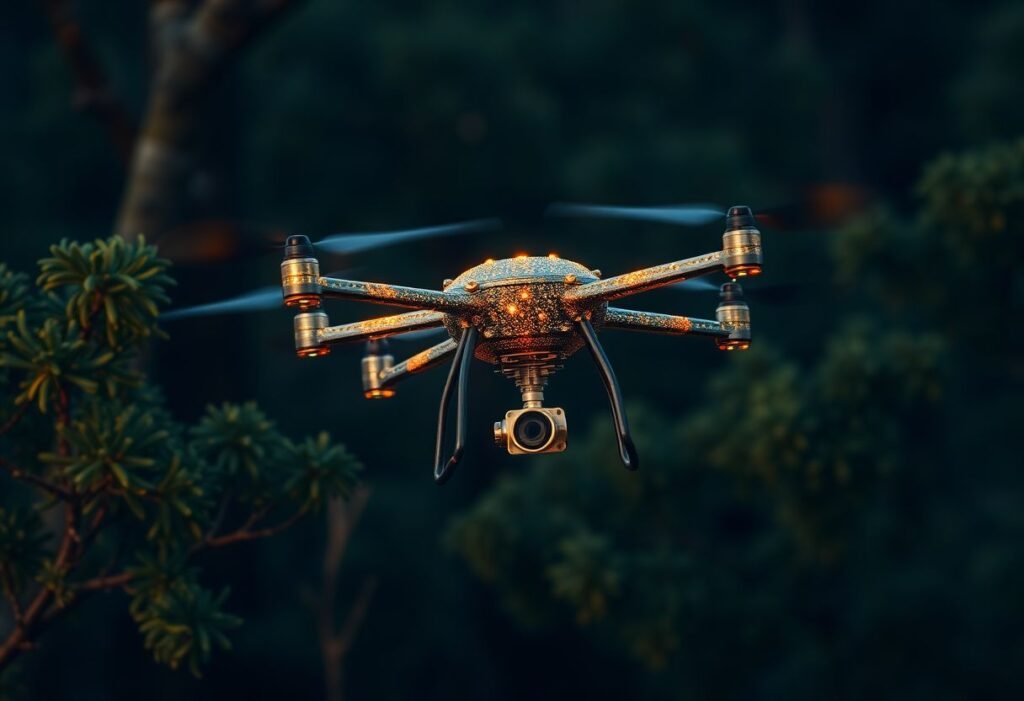Collecting genetic material from treetops can be a challenging and risky endeavor, particularly in dense tropical rainforests. Acknowledging this difficulty, researchers have engineered a groundbreaking solution that leverages drone technology to gather vital DNA samples efficiently and safely.
Innovative Drone Technology for DNA Collection
In an extraordinary breakthrough, scientists have developed a sophisticated drone system designed to collect genetic material from treetops in tropical rainforests. This novel approach eliminates the need for researchers to physically climb trees, which poses safety risks and could potentially harm the fragile ecosystem. Utilizing a disc-shaped fabric probe suspended from a quadcopter, the drone delicately collects DNA samples without causing any disruption to the environment. Such advancements emphasize the role of technology in ecological studies and conservation efforts.
Enhancing Environmental Research
The incorporation of drone technology in environmental research marks a significant evolution in how scientists study ecosystems. By enabling safe access to hard-to-reach areas, this approach not only streamlines the data collection process but also enhances the accuracy of ecological assessments. The DNA obtained can provide invaluable insights into biodiversity, species distribution, and the overall health of ecosystems, paving the way for more informed conservation strategies.
Meet the Challenges of Tropical Ecosystems
Tropical rainforests are among the most biodiverse regions on the planet, yet they also present unique challenges for researchers. Traditional methods of sampling can be time-consuming and may irreparably damage sensitive flora. The drone-based collection system circumvents these issues, increasing efficiency and reliability in obtaining environmental DNA (eDNA). With such technology, researchers can now gather comprehensive genetic data that supports broader ecological studies without directly interacting with the treetops.
Potential Impact on Conservation Efforts
The impact of utilizing drones for DNA sampling extends beyond academic research. Conservationists can greatly benefit from the ability to monitor the genetic health of populations over time. As habitats change due to climate impact, understanding genetic diversity will be crucial for the effective management of species. Thus, this drone method represents a vital tool in the fight for biodiversity conservation and ecological preservation.
Future Prospects of Drone-Enabled Research
The future of environmental research will likely be defined by the continued integration of innovative technologies such as drones. As society embraces this forward-thinking approach, researchers will be able to conduct extensive studies across diverse ecosystems with unprecedented ease. The benefits of such automation not only minimize human impact on delicate habitats but also encourage greater participation in scientific research through enhanced accessibility.
Conclusion: Bridging Innovation and Ecology
The development of drone technology tailored for DNA collection underscores a pivotal moment in the intersection of innovation and ecology. By harnessing the precision of technology, researchers and conservationists alike can address the challenges posed by traditional sampling methods. As this field evolves, the synergy between advanced tools and environmental science promises to forge new pathways for understanding and preserving our planet’s natural heritage.Disclaimer: This article is for informational purposes only and does not represent professional advice.





















